Serbia to focus “both EU integration and national interests"
Deputy Prime Minister and Interior Minister Ivica Dačić pointed out Monday that Serbia was committed to dialogue.
Monday, 03.10.2011.
15:14

Deputy Prime Minister and Interior Minister Ivica Dacic pointed out Monday that Serbia was committed to dialogue. He added that Serbia's strategy was both to stay on its European path and protect national interests. Serbia to focus “both EU integration and national interests" "I am convinced we can offer Europe a great deal, just as it can to us. Peace and stability are an imperative for regional policy... We need to resolve all obstacles on the way to Europe together," Dacic said opening the 11th Economic Summit of the Republic of Serbia. Talking about the outlooks and challenges of Serbia-EU relations, in the context of the global economic crisis, which is the theme of this year's summit, he stressed the importance of three topics in shaping Serbia's future - the economy, energy and integration. "The government is committed to a European future and accelerated economic growth. This is a country looking to the future and trying to see its perspective on the European path. The world economic crisis did not originate in the Balkans, like some other things, but it is inevitably reflected in Balkan countries which are faced with the crisis as part of the global process," he added. According to Dacic, the crisis was not a big surprise to Serbia, in light of what the country had been through in recent times. “EU integration is our most important strategic goal, and numerous activities of the Serbian government are closely tied to creating a better climate for joining the European family, including important areas such as fighting organized crime, corruption and money laundering,” he added. Stressing the importance of regional cooperation, the deputy prime minister reminded that in Ohrid on Monday he and his Macedonian counterpart would sign an agreement on passport-free travel between the two countries. "It is very important that we in the former Yugoslavia have a mini Schengen zone to show that we in the Balkans can come to an agreement after all," Dacic concluded. Austrian European and International Relations State Secretary Wolfgang Waldner and Dacic had a heated debate about the Kosovo issue and the possibility of partition of the southern Serbian province. Waldner underscored that the Austrian government believed Serbia should obtain the EU candidate status and launch accession talks as soon as possible, but the territorial conflict with neighboring countries needed to be resolved. According to him, Kosovo's independence is a reality and partition is not an option, and competent bodies should come up with a formula for resolution of the northern Kosovo issue as soon as possible. When Waldner finished his speech, Dacic said that he would offer a response and save Russian Ambassador Aleksandr Konuzin trouble. He recalled that Serbia was divided first, only to reach a stand that there could be no partitions. The Serbian deputy prime minister and interior minister said that Waldner was talking about the reality of an independent Kosovo and that partition was not an option. “Serbia's borders were first changed and then it was said that lines cannot be redrawn. Out of the entire communist heritage dating back to Tito's regime, only the notion of borders was preserved,” he pointed out. “Albanians did not want to live in Serbia and they have that right,” Dacic said and added that Serbs did not want to live in an independent Kosovo either. He expressed expectation that Waldner, as a democrat, would, recognize that right as well. Dacic recalled that none of the countries that wanted to become members of the EU had to negotiate as to what would happen to a part of its territory on its EU path. “We are prepared to discuss this issue as well,” he stressed and added that the blame for the violence in northern Kosovo was placed on criminals while in fact crime in northern Kosovo was a “child's play compared to that in Pristina.” “If (Kosovo Prime Minister Hashim) Thaci manages to conquer northern Kosovo by military means, is Serbia supposed to keep silent so as to access the EU,” Dacic asked. According to the interior minister, the current reality is that there are “two Kosovos, the Serb one and the Albanian one.” “The international policy has respected reality for years and will come round to appreciate this reality sooner or later,” the minister said. “It is important to find a solution to the Kosovo status with the consent of the country from which it is seceded, and this is beneficial for the international community too because everyone has their own Kosovo, it is just a matter of time when their turn will come,” Dacic pointed out. Ivica Dacic (Tanjug)
Serbia to focus “both EU integration and national interests"
"I am convinced we can offer Europe a great deal, just as it can to us. Peace and stability are an imperative for regional policy... We need to resolve all obstacles on the way to Europe together," Dačić said opening the 11th Economic Summit of the Republic of Serbia.Talking about the outlooks and challenges of Serbia-EU relations, in the context of the global economic crisis, which is the theme of this year's summit, he stressed the importance of three topics in shaping Serbia's future - the economy, energy and integration.
"The government is committed to a European future and accelerated economic growth. This is a country looking to the future and trying to see its perspective on the European path. The world economic crisis did not originate in the Balkans, like some other things, but it is inevitably reflected in Balkan countries which are faced with the crisis as part of the global process," he added.
According to Dačić, the crisis was not a big surprise to Serbia, in light of what the country had been through in recent times.
“EU integration is our most important strategic goal, and numerous activities of the Serbian government are closely tied to creating a better climate for joining the European family, including important areas such as fighting organized crime, corruption and money laundering,” he added.
Stressing the importance of regional cooperation, the deputy prime minister reminded that in Ohrid on Monday he and his Macedonian counterpart would sign an agreement on passport-free travel between the two countries.
"It is very important that we in the former Yugoslavia have a mini Schengen zone to show that we in the Balkans can come to an agreement after all," Dačić concluded.
Austrian European and International Relations State Secretary Wolfgang Waldner and Dačić had a heated debate about the Kosovo issue and the possibility of partition of the southern Serbian province.
Waldner underscored that the Austrian government believed Serbia should obtain the EU candidate status and launch accession talks as soon as possible, but the territorial conflict with neighboring countries needed to be resolved.
According to him, Kosovo's independence is a reality and partition is not an option, and competent bodies should come up with a formula for resolution of the northern Kosovo issue as soon as possible.
When Waldner finished his speech, Dačić said that he would offer a response and save Russian Ambassador Aleksandr Konuzin trouble.
He recalled that Serbia was divided first, only to reach a stand that there could be no partitions.
The Serbian deputy prime minister and interior minister said that Waldner was talking about the reality of an independent Kosovo and that partition was not an option.
“Serbia's borders were first changed and then it was said that lines cannot be redrawn. Out of the entire communist heritage dating back to Tito's regime, only the notion of borders was preserved,” he pointed out.
“Albanians did not want to live in Serbia and they have that right,” Dačić said and added that Serbs did not want to live in an independent Kosovo either. He expressed expectation that Waldner, as a democrat, would, recognize that right as well.
Dačić recalled that none of the countries that wanted to become members of the EU had to negotiate as to what would happen to a part of its territory on its EU path.
“We are prepared to discuss this issue as well,” he stressed and added that the blame for the violence in northern Kosovo was placed on criminals while in fact crime in northern Kosovo was a “child's play compared to that in Priština.”
“If (Kosovo Prime Minister Hashim) Thaci manages to conquer northern Kosovo by military means, is Serbia supposed to keep silent so as to access the EU,” Dačić asked.
According to the interior minister, the current reality is that there are “two Kosovos, the Serb one and the Albanian one.”
“The international policy has respected reality for years and will come round to appreciate this reality sooner or later,” the minister said.
“It is important to find a solution to the Kosovo status with the consent of the country from which it is seceded, and this is beneficial for the international community too because everyone has their own Kosovo, it is just a matter of time when their turn will come,” Dačić pointed out.












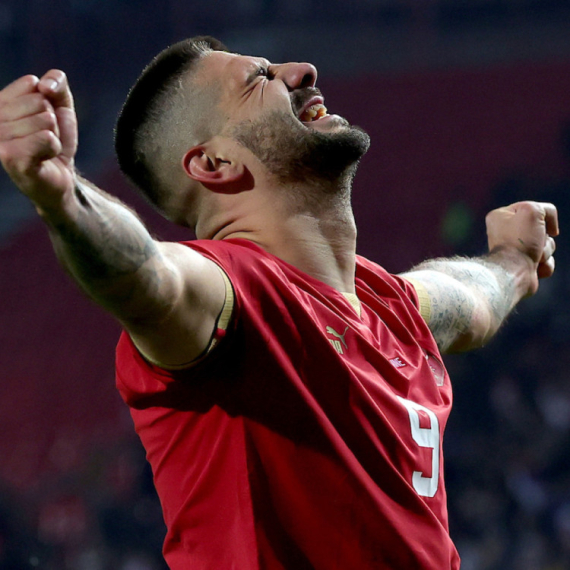


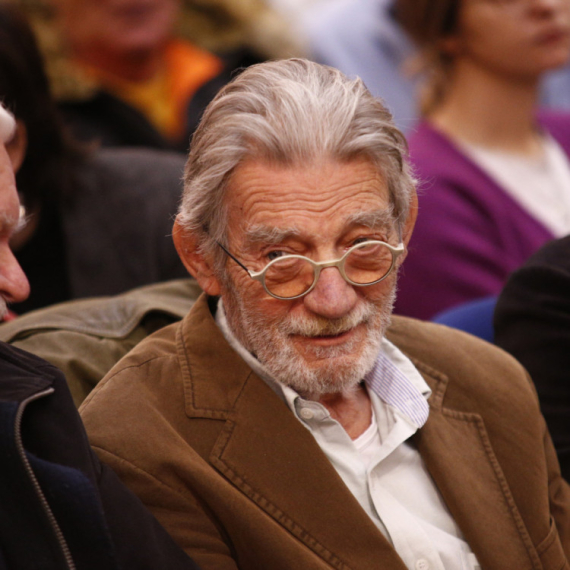
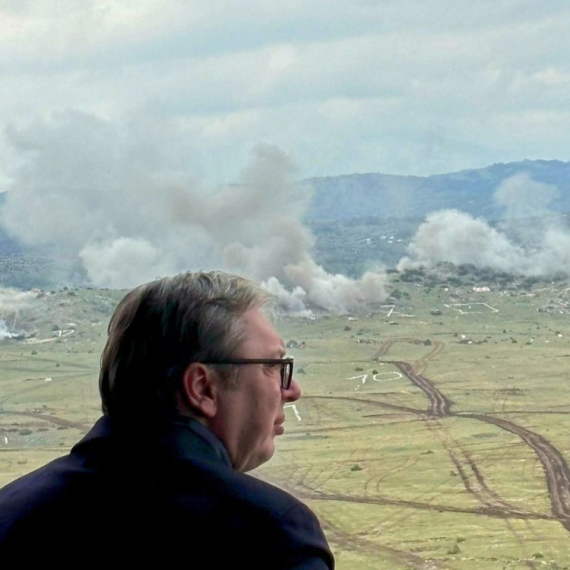
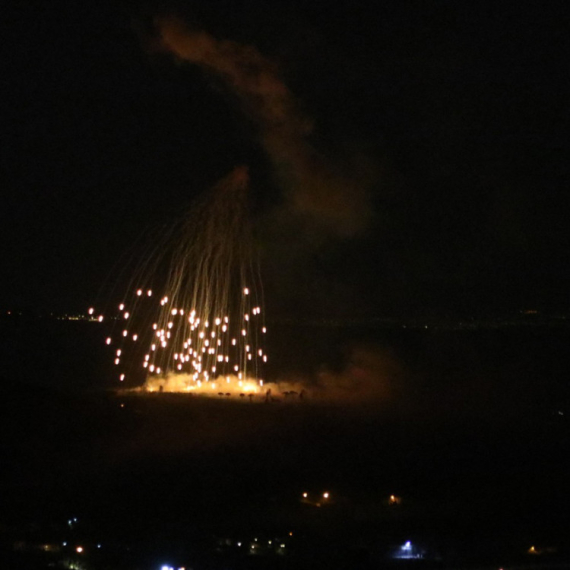
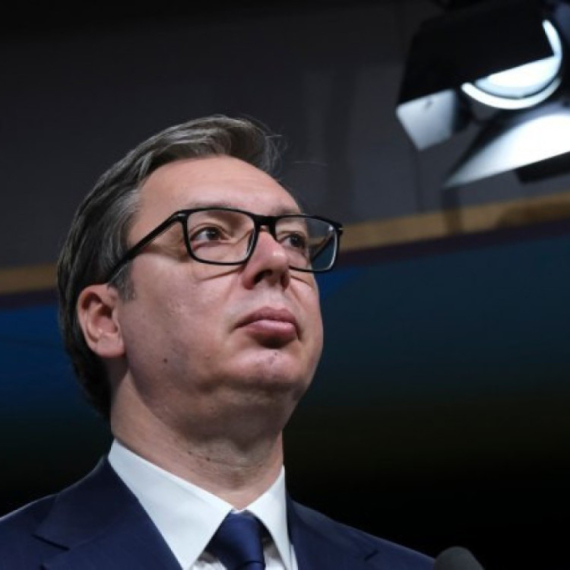

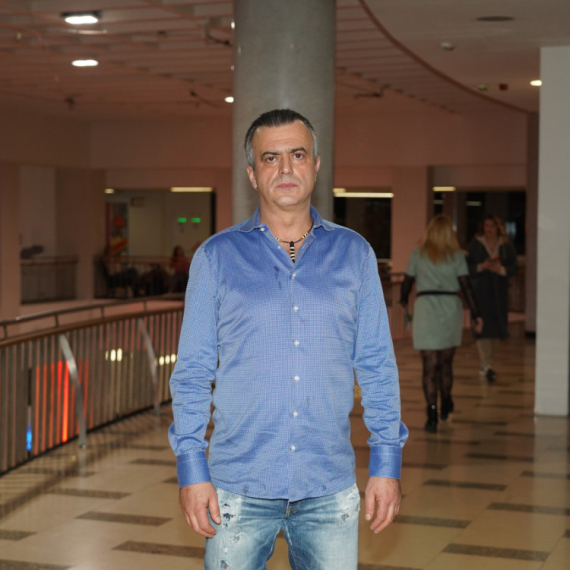





































Komentari 5
Pogledaj komentare